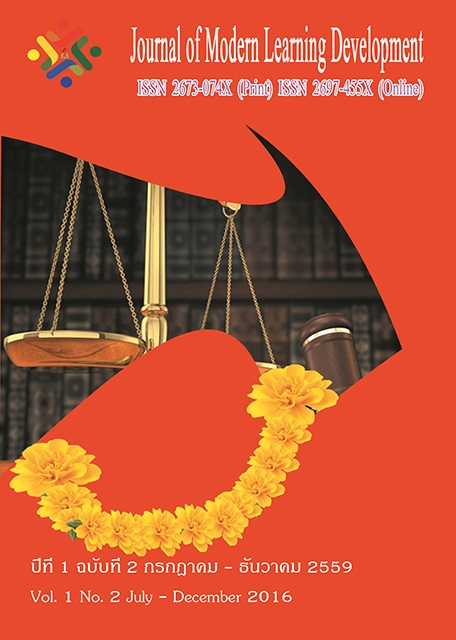Creating Satisfaction in The Management of Executives in The Current Situation
Main Article Content
Abstract
This academic article Want to present the management satisfaction of the management in the current situation Executives must be stable, fair, not to show power, accept their own mistakes. Do not throw fault for others. Frankly, there is a human relations principle, giving importance to society. Must always learn Must use knowledge, techniques, new ideas For greater progress
The management must understand the steps of the needs of others. contain with Physical needs Security requirements Social needs Needs to be praised Needs for success in life Knowledge needs Need for understanding Aesthetic needs
Article Details
References
จันทรานี สงวนนาม. (2536). เอกสารประกอบการสอนบรรยายหลักสูตรผู้บริหารสถานศึกษาระดับสูง. กรุงเทพมหานคร: ปริ้นนิวส์.
ปรียาพร วงษ์อนุตรโรจน์. (2556). การบริหารงานวิชาการ. กรุงเทพมหานคร: ศูนย์สื่อเสริมการพิมพ์.
สายสวาท พันธุ์อุดม. (2548). ความพึงพอใจของผู้ปกครองที่มีต่อการบริหารโรงเรียนมารีวิทย์ จังหวัดชลบุรี. งานนิพนธ์การศึกษามหาบัณฑิต. คณะศึกษาศาสตร์: มหาวิทยาลัยบูรพา.
สุรัฐ ศิลปะอนันต์. (2527). นักบริหาร. กรุงเทพมหานคร: สำนักพิมพ์ไทยวัฒนาพานิช.
เสนาะ ติเยาว์. (2544). หลักการบริหาร. กรุงเทพมหานคร: มหาวิทยาลัยธรรมศาสตร์.
A.H. Maslow.(1960). A Theory of Human Motivation : Human relations in management. Cincinnati: South-Western Publishing Co.
Davis K. (1967). Human relation at work : The dynamic of organization behavior. New York : Mc. McGraw-hill.
Hinshaw A.S. and J.R. Atwood. (1987). A patient satisfaction instrument : Precision try Replication. New York: Nursing Research.
McGregor D., (1960). The human dice of enterprise. New York : Free Press.


